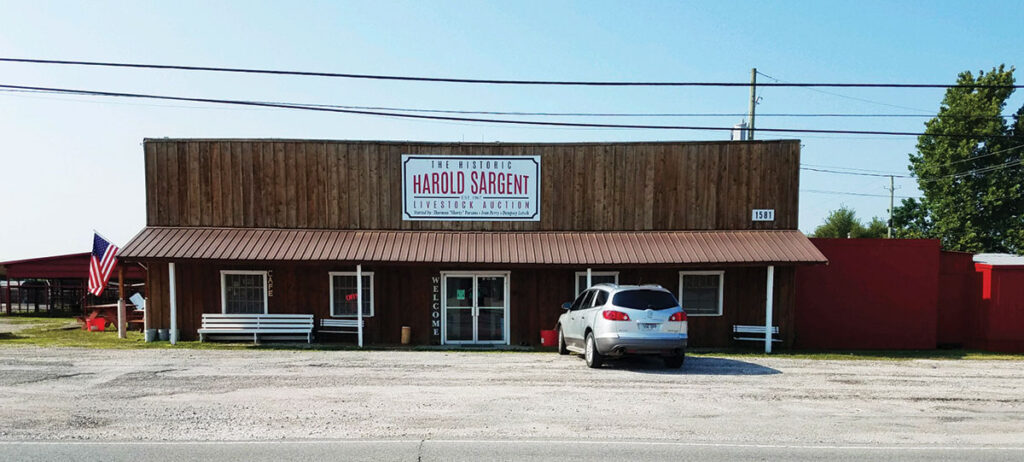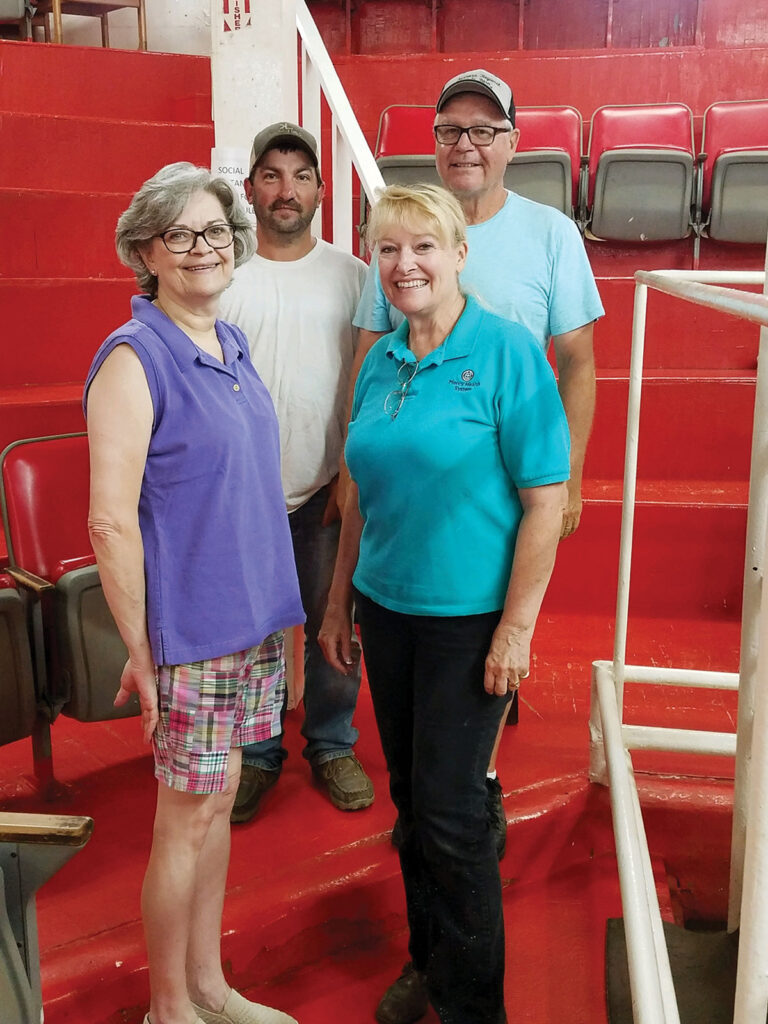
Ruth Jones assumed management of Farmers Regional Sale Barn in 2020
SPRINGDALE, ARK. – When the Farmers Regional Sale Barn was in danger of closing its doors, Ruth Jones tried to rally support in the community for a new owner to take over. While many in the Springdale, Ark., community agreed with her, no one was willing to step up to save the barn, which opened in 1937, so Ruth did.
“I didn’t plan this,” Ruth said with a laugh. “The sale barn was part of the community, so one night I came home and told my husband (Jim), ‘We’re going to have to run that sale barn.’ He said, ‘Oh my gosh, Ruth. What are you thinking?’ We had our own business, and this was just another business.”
Ruth took over in 2020 from long-time owner Harold Sargent, who had run the barn since 1967. When Harold initially retired in 2018, other individuals took over the operation, but only last a couple of years. Harold still owns the property, but it is leased to Ruth, and Ruth is the business owner.
Ruth and Jim have been involved in the cattle industry throughout their 50-year marriage, so they are familiar with the industry.
“His family moved here from Colorado in the 1970s, bringing some of the first full-French Charolais cattle into this area,” Ruth said. “I grew up on a small farm, so raising cattle isn’t new to me; I’m just on the other side now.”
Her first year was a struggle, but things are beginning to pick up for Farmers Regional.
“Our grand opening was the day they shut the country down because of COVID,” Ruth said. “Right after COVID, we had the stocker and packers in dispute, then that spring we had horrible rains and mud, and then in February, we had all of the freezing weather. One guy told me if we could survive all of this, then we were pretty tough.”
Farmers Regional typically runs between 200 and 300 head of cattle at their weekly Friday sale, and Ruth wants to see that number increase to at least 400. With the help of employees and field reps, Ruth said they are making some headway.
“They know a lot more about it than I do. I knew I couldn’t do it unless those people stayed. Everyone has been very, very helpful,” Ruth said of her employees.

Farmers Regional has expanded to include a sheep, goat and hog sale on the first Saturday of each month and an “alternative” livestock sale.
“In October, we are going to have our first alternative animal sale, and that will include any exotic cattle, equines, goats and sheep varies,” Ruth said. “We will have zebras, zedonks, and that kind of thing. I know the other sale barns aren’t doing things like this because they are getting enough cattle that they don’t have to look at other income routes like I do. I try to think of other things to use the sale barn for because it basically sits there the whole week, and we are only using it one day. I’m looking at what I can do to utilize it more and boost revenue.”
Some customers drifted away from Farmers Regional during the transition time, but Ruth is trying to gain back those customers, and bring in new buyers and sellers.
As a smaller market, we have less wait time and we work to reduce stress and dehydration. We have water available in all our pens, plus we use fans and misters to keep the cattle cool. Also we have a calmer, less hectic atmosphere than you may see in larger markets. All these efforts reduce stress and maintain the health of our cattle. Buyers want to buy healthy cattle, so these efforts are a win-win for everyone.
— Ruth Jones
“All of the other barns do a good job, are nice to the people, and do a great job,” she said. “My hat is off to them, so it’s a tight market. My brother-in-law (David Jones) told me ranchers stick to their sale barns like bark on a tree. Once they develop a relationship, they are very loyal. I have a man from Fort Smith who brings his cattle to me. He says he has always brought his cattle here and always will. I’ve had a few come back, and I have a couple of new customers, too”
Ruth is also trying to reduce shrinkage on cattle coming through the ring, which costs sellers money.
“I don’t think most people realize how important that is,” she said. “Research shows calves that are stressed and have extended wait times before they sell can lose up to 6 percent of their body weight. So in a 500-pound calf, that’ s 30 pounds. In today’s market that is approximately $45 a head. That’s a big loss to a seller.
“As a smaller market, we have less wait time and we work to reduce stress and dehydration. We have water available in all our pens, plus we use fans and misters to keep the cattle cool. Also we have a calmer, less hectic atmosphere than you may see in larger markets. All these efforts reduce stress and maintain the health of our cattle. Buyers want to buy healthy cattle, so these efforts are a win-win for everyone.
Of all the lessons she has learned over the last year and a half, it’s the resilience of cattle producers that sticks out the most for her.
“Any problem or concern you throw at them, they will figure out a way to make it work; they’re just tough. I’m very pleased to get to know the buyers and sellers, and ranchers are just nice people. I’ve always known that but it just gets proven to me more and more on the other side of the business.”
The first year and a half may have been a struggle for Ruth, but she has no regrets.
“Not one,” she said. “Jim and I have sold cattle there since the 1970s, and I know a lot of the farmers and ranchers who go here. I’ve had several tell me ‘thank you’ for keeping it open because it’s close to where they ranch.
“There is a big camaraderie of guys, and some of them are retired now, who come to watch the sale because that’s what they have always done.”







